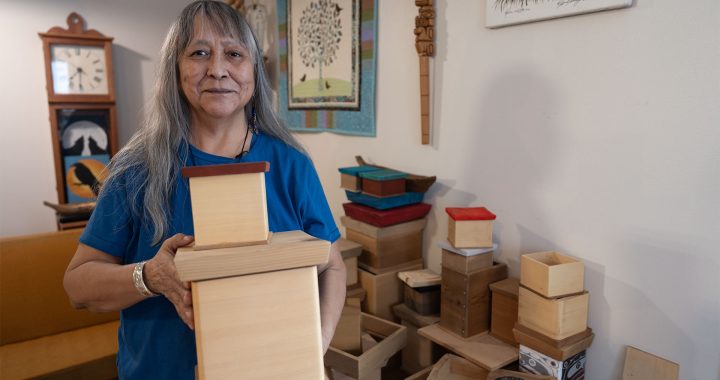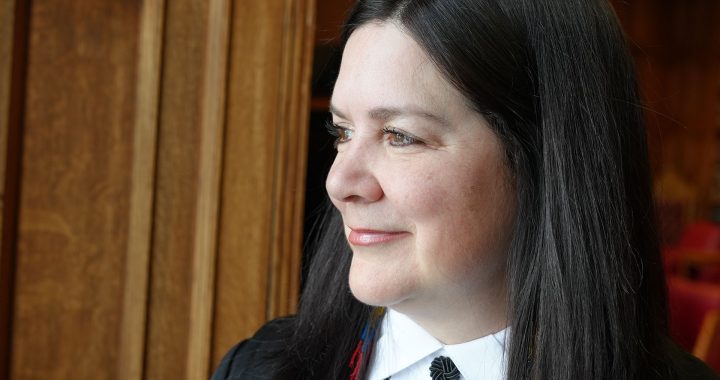Two Indigenous men were acquitted of 50-year-old murder convictions Tuesday with the help of Innocence Canada and Manitoba’s top judge.
Chief Justice Glenn Joyal told a packed courtroom in Winnipeg that Brian Anderson and Allan (A.J.) Woodhouse were wrongly convicted in 1974 of killing restaurant worker Ting Fong Chan.
Not only that, said Joyal of Court of King’s Bench, but the men were not guilty.
“You are innocent and you deserve the acquittals,” said the judge, who was supposed to preside over a new trial. “I’m happy to offer an apology on behalf of the institution and system that failed you.
“You are heroes in every sense of the word.”
Everyone from the police to the prosecution to the prison system conspired to keep them locked up, added Joyal, but their courage and perseverance prevailed.
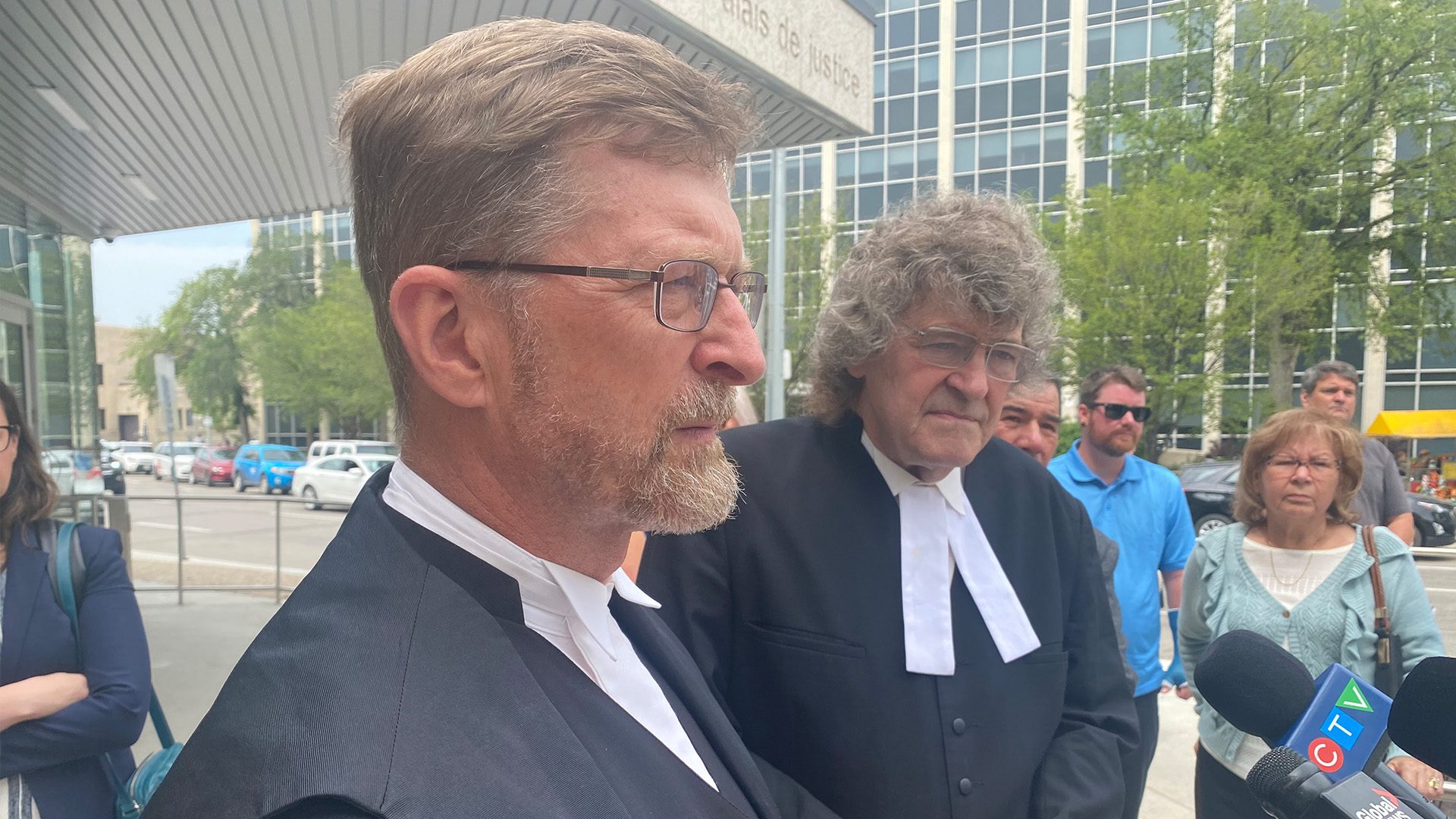
Anderson and Woodhouse, who are now senior citizens, shook hands with their defence attorneys, Jerome Kennedy and James Lockyer, following the dramatic hearing while spectators in the gallery clapped and cheered.
“Sure, I’m angry,” said Anderson afterwards. “But (today) I just want to be happy.”
The pair, both from Pinaymootang First Nation northwest of Winnipeg, said they wanted to celebrate and reflect on the words they waited half a century to hear.
“This has been a long time coming,” said Woodhouse, who is in a wheelchair due to complications from diabetes and awaiting a kidney transplant.
“I’m a bit tired.”
The men were teenagers when they were arrested – along with Woodhouse’s brothers Russell and Clarence – and charged by Winnipeg police with the fatal stabbing of the 40-year-old chef. They said police threatened and intimidated them into signing false confessions.
Both had moved to Winnipeg in search of better lives. They had jobs and were pursuing careers, court heard.
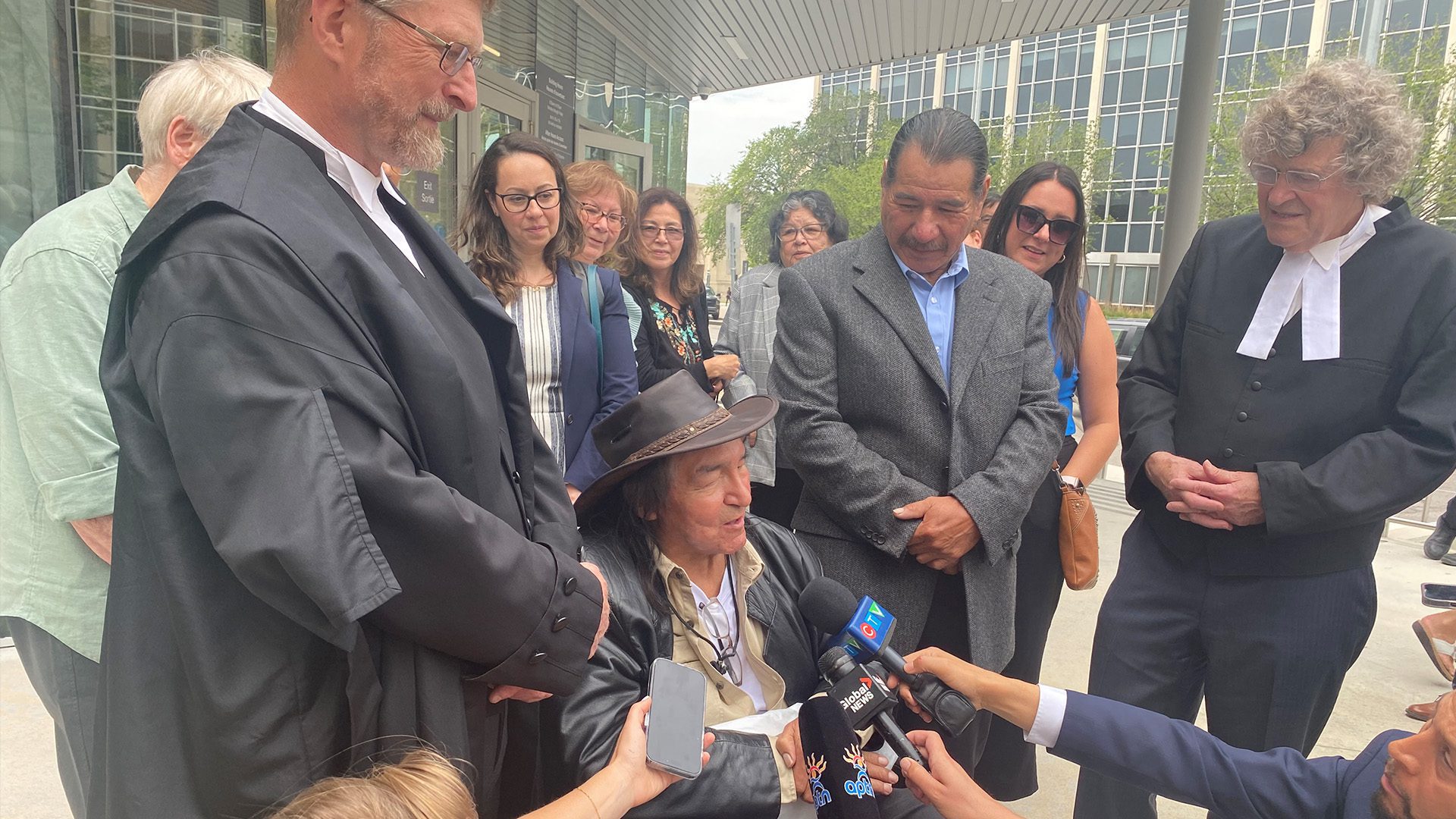
The men pleaded not guilty, but were convicted by a jury with the judge in the case deriding their ancestry and accusing them of making “a complete fabrication.”
Allan, Clarence and Anderson were convicted of second-degree murder while Russell, who has since died, was convicted of manslaughter. The whereabouts of Clarence remains unknown, court was told.
The court also court heard the men were tried before the protections provided by the Canadian Charter of Rights and Freedoms and subsequent justice reforms came into effect.
The prosecutor at the time was Crown attorney George Dangerfield, whose string of convictions have slowly unravelled and left a permanent stain on the reputation of the Winnipeg Police Service and Manitoba Justice. Two high-profile exonerees – Thomas Sophonow and Frank Ostrowski – were in the courtroom Tuesday to support Anderson, they said.
“The case would not have proceeded today,” Crown attorney Danielle Jules told the court after she declined to enter evidence and said the men should be acquitted. “It wouldn’t even come close.
“It fell well below the expected standards of 1974.”
She apologized to Allan and Anderson. And said their confessions were “entirely manufactured.”
Jules noted the same Winnipeg police detectives were involved in other wrongful convictions at the time.
“Our justice system failed,” she told court. “They were wrongfully convicted. For that I am sorry.”
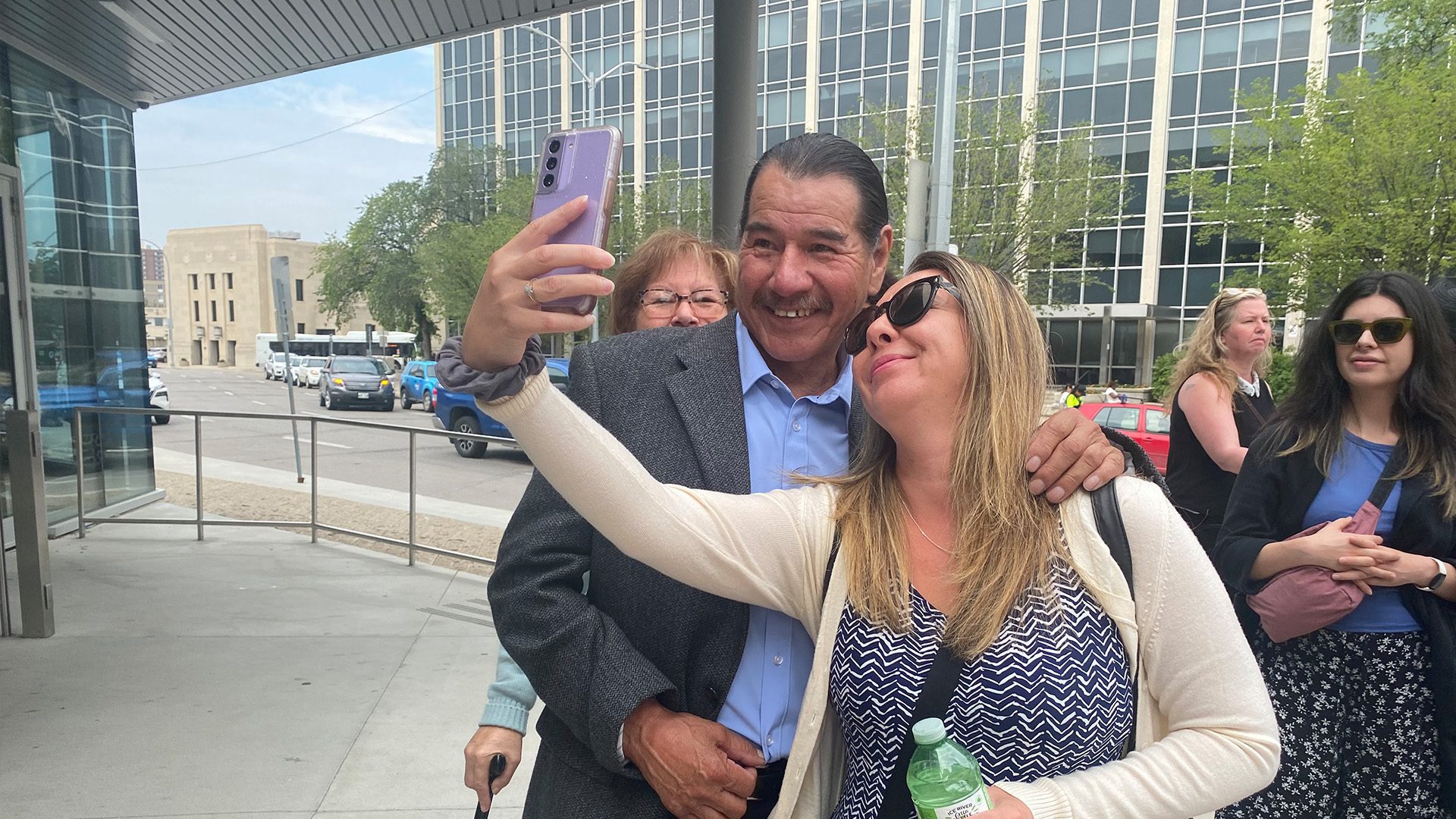
The Manitoba government has paid millions of dollars in compensation to several exonerees from Dangerfield’s term as a prosecutor. Something Anderson said he would be seeking as well.
“I think I deserve it,” he told reporters.
Allan, 66, was studying to become an electrician. He said it was devastating to be falsely accused.
“I pushed my family away and isolated myself,” he said, noting he never married. “It was a survival skill.”
Allan spent 23 years behind bars because it took numerous tries to finally obtain parole in 1990 without admitting guilt.
“Prison was harsh, very harsh,” he noted. “The Parole Board never believed me that I was innocent.”
Anderson, 68, was released on parole in 1987 after serving 11 years in prison to a life of restrictions.
A tragedy
“He spent 38 years on parole,” said Kennedy, a former justice minister in Newfoundland. “This was a tragedy of epic proportion.
“They have shown what real resilience is [as they continued] to fight to clear their names,” he said of his clients.
“We owe them our respect.”
Both men had appealed to higher courts soon after their convictions and were denied. They applied for federal reviews of their convictions in 2019 and 2020.
Federal Justice Minister David Lametti ordered a new trial for them in June.
Lockyer, who helped found Innocence Canada to fight miscarriages of justice, said the men were failed by the justice system “from beginning to end.
“Hearing that it was false confessions doesn’t capture what happened to them.”
Sadly, the case isn’t unique, added Lockyer, referring to the overrepresentation of Indigenous peoples in the nation’s prisons due to “individual and systemic racism.”
Canada needs to acknowledge how its treatment of Indigenous peoples has fuelled wrongful convictions and correct it as a matter of “truth and reconciliation,” he said.
Sets a precedent
The men’s acquittal sets a precedent for other miscarriages of justice involving Indigenous peoples, Lockyer added.
Win Wahrer, a co-founder of Innocence Canada, said the acquittals will be numbers 27 and 28 on its list of wrongful convictions obtained so far.
She gave the exonerees black t-shirts proclaiming them “Innocent” on the front.
“Your names will be added to the back,” she noted.
Meanwhile, family members of the victim were present in court but declined to be interviewed. Lockyer suggested the killer of Chan, who was beaten and stabbed to death, will likely never be known.
Chan’s body was discovered near a downtown construction site on July 17, 1973.








